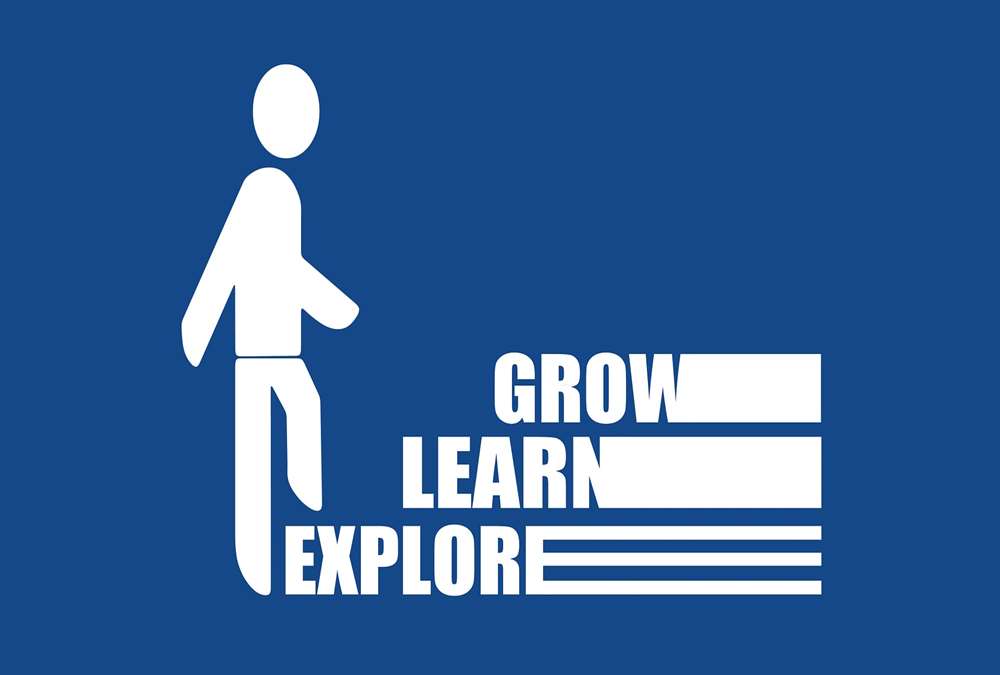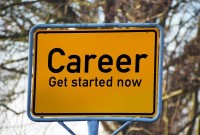- Home
- Business Processes
- Industry Knowledge
- Aerospace Industry
- Automotive Industry
- Banking Domain
- BFSI Industry
- Consumer/ FMCG Industry
- Chemicals Industry
- Engineering & Construction
- Energy Industry
- Education Domain
- Finance Domain
- Hospitality Domain
- Healthcare Industry
- Insurance Domain
- Retail Industry
- Travel and Tourism Domain
- Telecom Industry
- Leadership Skills
- eLearning
- Home
- Leadership Skills
- Career Management
- Evaluating Your Career Interests
Evaluating Your Career Interests
Want to find out what you are best at when it comes to proactively building your career? What are your real interests? The first step in career planning is reflecting. Reflecting upon your own self, to be more self-aware, and then following your dreams with both your heart and mind. Here is an opportunity to begin exploring yourself. At the end of the process, you will have a far better understanding of your desires than you have currently.
The first step in career planning is reflecting. Reflecting upon your own self, to be more self-aware, and then following your dreams with both your heart and mind. Here is an opportunity to begin exploring that age-old question, ‘what do I want to do in my life?’ Try answering these questions and at the end of the process, you will have a far better understanding of your desires than you have currently. Try to introspect, as the answers to these questions are buried deep within you. Some questions might lead to the same answer, but we encourage you to try answering all of the following questions honestly, even if the answer seems to be the same!
Q1. What are my talents and strengths?
What are your top talents and strengths? What is it that you are good at? What is it that you enjoy doing and are passionate about? The talents you achieve most with? The activities you get the most satisfaction from?
Q2. How do other people think of me?
What is my perception of other people? What am I known for? What is it for which they generally come to me, seek my help or advice?
Q3. If money were no concern, what I would be doing?
While answering this question, think of no boundaries. Imagine you have the power to accomplish anything and you don’t have to worry about earning money to lead your life. In such a situation what you would do?
Q4. When have I been most committed, passionate, and enthusiastic?
Reflect on your life to date. When you have been most committed? When did you love working on something so much that you lost track of time? When you got satisfaction from some activity? When was the time you felt very committed and passionate about some task?
Q5. When have I been most creative?
Reflect again to remember when your creativity has been on its peak. When you created something that you enjoyed most? When have you enjoyed your work most?
Q6. What do I consider to be my greatest accomplishment?
What accomplishment you value most. Is there anyone moment in your life that you felt was your greatest achievement? Your answer can be related to any phase of your life, schooling, work, or personal life, as long as you view it as a personal achievement.
Q7. When do other people consider being my greatest accomplishment?
When other people think you have been the most successful. When you got a lot of recognition from others for doing something? What is it that you think your family, friends are proud of you?
Q8. When I have been most sure of myself and my decisions?
What were the circumstances when you were most sure of your decisions and were willing to make those decisions? Is there a situation where you have taken a very strong stand? If yes, what were you trying to achieve?
Q9. What talents was I relying on, and using, in these situations?
What were the talents that you were using were confident of in situations from Q2 to Q8. Were there some interests or values that you were following? Also, add any talents that you might have discovered using any psychometrics tests.
Q10. What are my top 5 interests or talents?
Based on your reflection on questions from 1 to 9 identify your top 5 key talents or interests that matter most to you and you consider yourself to be good at.
Download the template provided here free of cost and use that to explore these questions. The five top talents will be used in a later exercise to understand your career options and developmental plan.
Explore Technofunc Toolkit
Technofunc resources aim at equipping you to leverage technology as well as learn critical business application processes along-with system integrity and security, systems audit, project management, and other key methods widely used today that helps in the integration of business processes and practices in tune with the requirements that are driven both by business, globalization, and legislature. We help you gain expertise in both technical and functional skills, which when applied collectively comprise of professional competence and excellence.
Given below are the different technofunc resources to start building your technical leadership skills:
Build Domain Skills
- Aerospace Domain
- Automotive Domain
- Banking Domain
- BFSI Domain
- Consumer / FMCG Domain
- Chemicals Domain
- Engineering and Construction Domain
- Energy Domain
- Education Domain
- Financial Management & Business Dynamics
- Global Markets Domain
- Hospitality and Leisure Domain
- Healthcare Domain
- Insurance Domain
- Technology Domain
- Retail Domain
- Travel Domain
- Telecom Domain
Related Links
You May Also Like
-
Develop your Leadership Skills
There are a number of broad skill areas that are particularly important for leaders. Today's demanding global business landscape is defined by relentless change and rising business complexity, bringing new challenges. Leadership skills provide career-enhancing resources and support you to be exceptionally successful in your career. Leaders need to provide direction to their teams and need to be able to make good and timely decisions to define and support strategic direction for the enterprise.
-
Concept & Definition of Stress
Stress is a popular expression used by people in day to day life. Pressures of day to day living sometimes necessitate coping or dealing with them and stretch the body beyond its natural capacity. They are called stressors. Stress is a natural, ongoing dynamic, and interactive process that takes place as people adjust to their environment.
-
In the early years, most jobs were skill-oriented, and with the development in lifestyles and technology, the current jobs are knowledge-oriented jobs such as management, accountants, design, or computing. Career paths encompass varied forms of career progression and this article discusses how we can build a fulfilling career? Learn here about career paths, industries, and opportunities for gaining experience in the field of your choosing.
-
Robert Katz identified three leadership skills called - technical skills, human skills, and conceptual skills as the basic personal skills essential for leadership. Leaders must possess these three skills that assist them in optimizing a leader's performance. Technical skills are related to the field, human skills are related to communicating with people and conceptual skills related to setting the vision.
-
Guide to Technical Leadership Skills
Technical leaders care about building amazing products and the best technical capabilities in their teams. Everything they do is focused on improving the user experience and bringing competitive advantage for their organization. Learn the skills and competencies you need to build a technical career path for yourself that starts with building technical expertise and grows into developing technical leadership.
-
Evaluating Your Career Interests
Want to find out what you are best at when it comes to proactively building your career? What are your real interests? The first step in career planning is reflecting. Reflecting upon your own self, to be more self-aware, and then following your dreams with both your heart and mind. Here is an opportunity to begin exploring yourself. At the end of the process, you will have a far better understanding of your desires than you have currently.
-
A manager or an employee in an organization who is experiencing a high level of stress may develop high blood pressure, ulcers, irritability, difficulty in making routine decisions, loss of appetite, accident proneness, and the like. These can be subsumed under three general categories, physiological, psychological, and behavioral symptoms. Stress can give rise to a number of changes.
-
Recognizing Stress & its Sources
As an individual, you almost certainly know what stress feels like. Stressors are events or situations to which people must adjust. Stressors may be physical or psychological in nature. The level of severity of stress is determined not merely by exposure but the intensity, duration, and frequency of stressors. The sources of stress are many. They arise from multiple areas both with the individual and from the environment.
-
At different points in your professional career, it is helpful to identify your core values. Values are the qualities considered to be the most important guiding principles that determine the priorities in your life and greatly influence your career choices. Your career brings happiness when it is in agreement with the beliefs you have about what is important and meaningful to you. Awareness of your values will help you develop a clearer sense of what's most important to you in life.
-
Time management is the process of planning and exercising conscious control of time spent on specific activities, especially to increase effectiveness, efficiency, and productivity. The best time management techniques improve the ways you work. Time management refers to managing time effectively so that the right time is allocated to the right activity. Learn more about the five steps for effective time management viz. study, identify, analyze, decide, and implement.
Explore Our Free Training Articles or
Sign Up to Start With Our eLearning Courses

About Us
Learning
© 2023 TechnoFunc, All Rights Reserved










